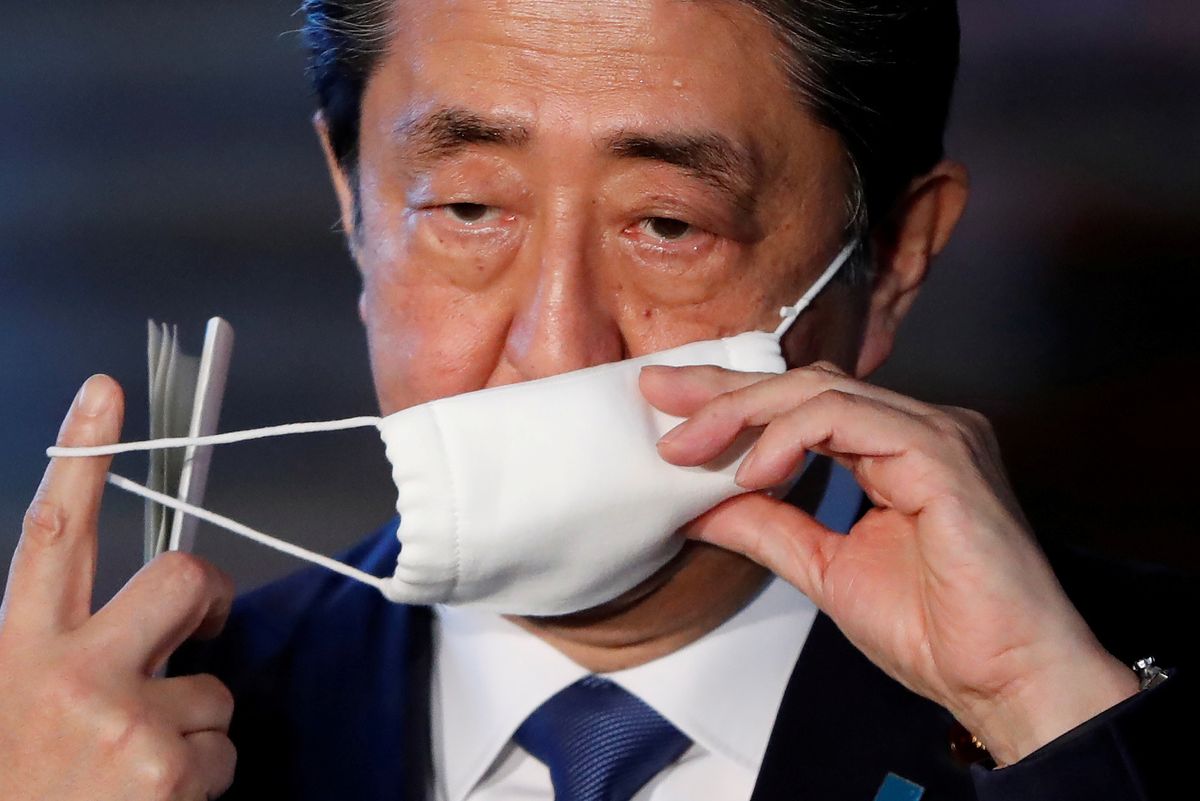Japan mulls state of emergency: Japan's prime minister Shinzo Abe is poised to declare a "state of emergency" because of the coronavirus pandemic, giving some local governments the authority to request people stay in their homes, and shutter businesses and schools. Japan has so far managed the crisis without the kinds of sweeping lockdowns seen elsewhere, but a surge of new cases in recent days – particularly in Tokyo – has put pressure on the government to do more. Japan has one of the world's oldest populations – a third of its people are older than 65, the demographic most vulnerable to COVID-19. The emergency decision comes at a tough time. Japan's economy has been hurting for several months now, as China's massive lockdowns in January and February cratered demand for Japanese exports. In order to deal with the fallout that comes with putting his economy on life-support, PM Abe said the government would push through a 108 trillion yen stimulus package.
Covid lockdowns spark uptick in domestic violence: "Violence is not confined to the battlefield," the UN secretary-general said in response to reports of a surge in domestic violence as lockdowns force women around the world to stay at home with abusive partners or family members. According to reports, instances of domestic violence have risen in countries including France, Australia, Turkey, and Malaysia as a result of quarantine measures. Meanwhile, in South Africa, authorities said there were 90,000 reports of violence against women in the first week of lockdown alone. Warning of a "horrifying global surge" in domestic violence, the UN has appealed to governments to step up efforts to protect women. But with resources in many countries spread thinner than ever, it's hard to imagine governments making this a priority.
Latin America looks for IMF help: Coronavirus cases have soared in Latin America over the last month, with the highest tallies reported in Brazil, followed by Chile and Ecuador. Scenes of bodies lining the streets in the overwhelmed Ecuadoran industrial hub of Guayaquil, an emerging regional epicenter, are a grim omen. Even beyond the public health toll, the economic impact could be catastrophic. As lockdowns and social distancing risk triggering the worst recession in 50 years, 14 Latin American and Caribbean countries have already asked the International Monetary Fund (IMF) for financial lifelines, seeking a collective $4.48 billion in economic relief. Even before the coronavirus hit, many of the region's economies were suffering from low prices for oil and other commodities, with some countries already flirting with outright recession. In total, around 80 emerging economies have so far requested financial relief from the IMF, which has earmarked around $1 trillion for relief.



















